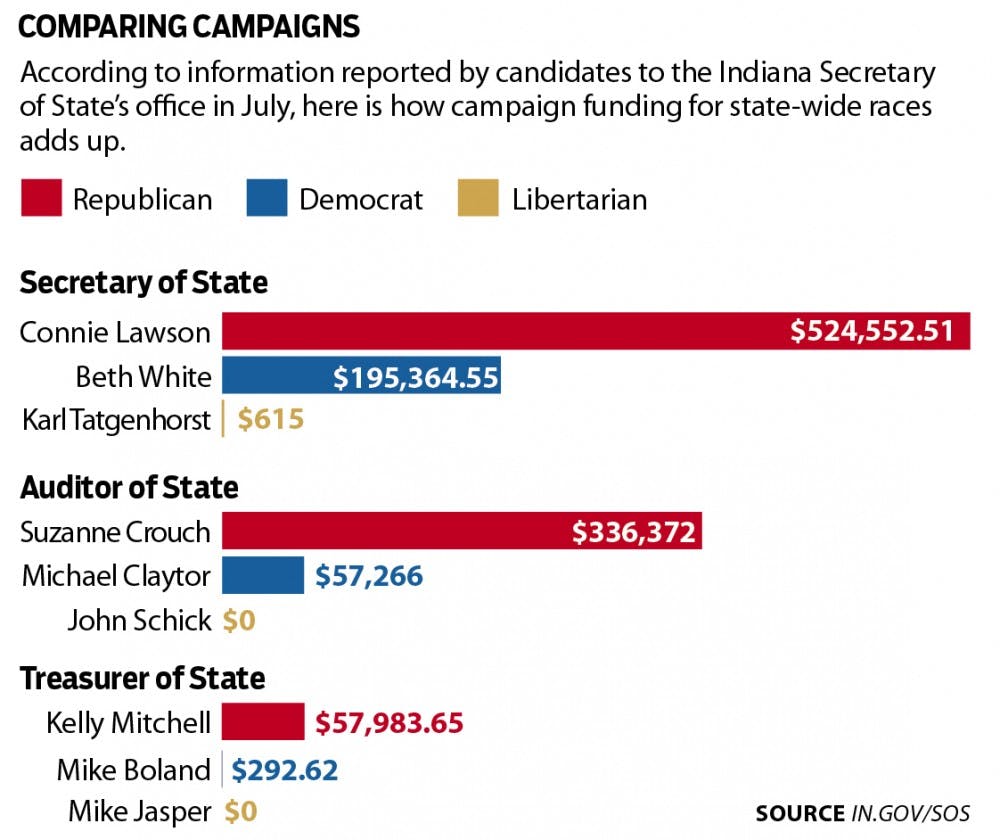Politico has projected that all incumbent candidates for the U.S House of Representatives seats in Indiana are likely to win.
One indication of this victory might be from the size of campaign funds compared to challengers.
This election, incumbents for representative seats in Indiana have, on average, 126,538 times the funds their challengers do, based on numbers from the Federal Elections Commission.
“Because incumbents have so many advantages over challengers — greater name recognition, an already-existing staff, the experience of having won a race for that office before, greater likelihood of media coverage — it’s usually the case that challengers have to raise at least a certain threshold in donations in order to compete successfully,” IU professor of political science Marjorie Hershey said in an email. “Most challengers are not able to do that; they typically raise very little money for their campaigns.”
Hershey said it is rare for fewer than 90 percent of incumbents for the U.S. House of Representatives to win.
Races for state-wide positions are no different. Incumbents for the secretary of state and auditor of state offices also have significantly higher funds than their challengers.
According to the July reports from the secretary of state’s office, the most recent available, Secretary of State Connie Lawson has $524,552.51. Her Democratic challenger Beth White has $195,364.
Republican treasurer of state candidate Kelly Mitchell, a former employee of the treasurer’s office, has $57,266, which is 20 times the funding of her challenger, Mike Boland. Boland has $292.62 left over from his previous $6,275 in funds.
Auditor of State Suzanne Crouch’s $336,372 is nearly six times the funding Democrat Michael Claytor has.
Libertarian candidates for state offices have significantly fewer funds than both major parties’ candidates.
Karl Tatgenhorst, candidate for secretary of state, reported $615. Auditor candidate John Schick and treasurer candidate Mike Jasper have no funds shown on the report.
Research suggests that spending by the challenger in a race matters more than spending by the incumbent, Hershey said.
While many funds that are raised by incumbents are from donations, often by organizations, candidates in other races and individuals, they are not always receiving money just for ideological support.
“Incumbents tend to be re-elected because they have many, many advantages, not just in raising money,” Hershey said. “But the bigger spender doesn’t always win. And when they do, it isn’t necessarily that the spending brought the victory; donors are more likely to give to the candidate who is likely to win.”





